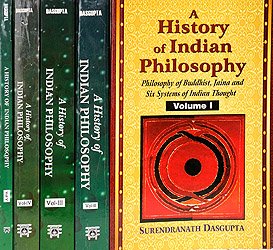A History of Indian Philosophy Volume 1
by Surendranath Dasgupta | 1922 | 212,082 words | ISBN-13: 9788120804081
This page describes the philosophy of the place of the vedas in the hindu mind: a concept having historical value dating from ancient India. This is the second part in the series called the “the vedas, brahmanas and their philosophy”, originally composed by Surendranath Dasgupta in the early 20th century.
Part 2 - The place of the Vedas in the Hindu mind
When the Vedas were composed, there was probably no system of writing prevalent in India. But such was the scrupulous zeal of the Brahmins, who got the whole Vedic literature by heart by hearing it from their preceptors, that it has been transmitted most faithfully to us through the course of the last 3000 years or more with little or no interpolations at all. The religious history of India had suffered considerable changes in the latter periods, since the time of the Vedic civilization, but such was the reverence paid to the Vedas that they had ever remained as the highest religious authority for all sections of the Hindus at all times. Even at this day all the obligatory duties of the Hindus at birth, marriage, death, etc., are performed according to the old Vedic ritual. The prayers that a Brahmin now says three times a day are the same selections of Vedic verses as were used as prayer verses two or three thousand years ago. A little insight into the life of an ordinary Hindu of the present day will show that the system of image-worship is one that has been grafted upon his life, the regular obligatory duties of which are ordered according to the old Vedic rites.
Thus an orthodox Brahmin can dispense with image-worship if he likes, but not so with his daily Vedic prayers or other obligatory ceremonies. Even at this day there are persons who bestow immense sums of money for the performance and teaching of Vedic sacrifices and rituals. Most of the Sanskrit literatures that flourished after the Vedas base upon them their own validity, and appeal to them as authority. Systems of Hindu philosophy not only own their allegiance to the Vedas, but the adherents of each one of them would often quarrel with others and maintain its superiority by trying to prove that it and it alone was the faithful follower of the Vedas and represented correctly their views.
The laws which regulate the social, legal, domestic and religious customs and rites of the Hindus even to the present day are said to be but mere systematized memories of old Vedic teachings, and are held to be obligatory on their authority. Even under British administration, in the inheritance of property, adoption, and in such other legal transactions, Hindu Law is followed, and this claims to draw its authority from the Vedas. To enter into details is unnecessary. But suffice it to say that the Vedas, far from being regarded as a dead literature of the past, are still looked upon as the origin and source of almost all literatures except purely secular poetry and drama. Thus in short we may say that in spite of the many changes that time has wrought, the orthodox Hindu life may still be regarded in the main as an adumbration of the Vedic life, which had never ceased to shed its light all through the past.
